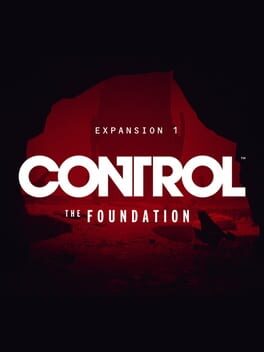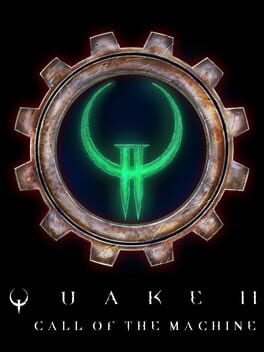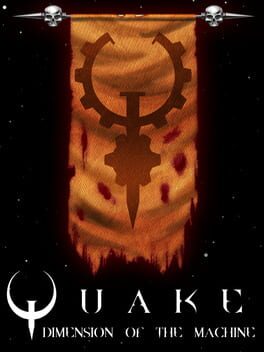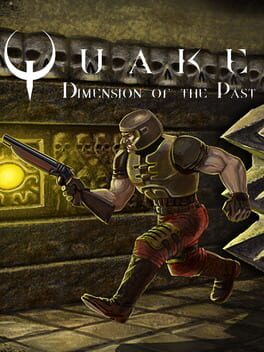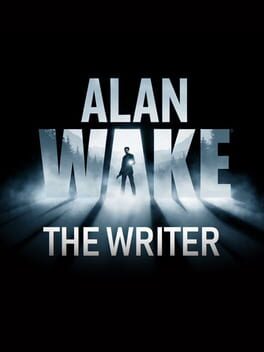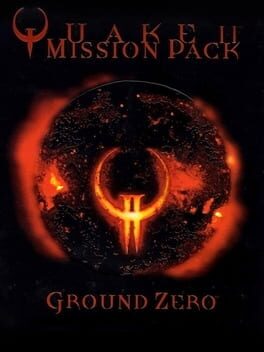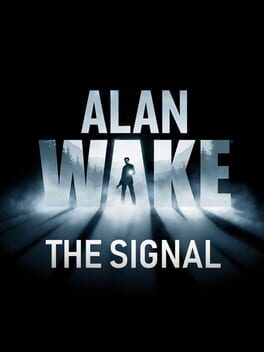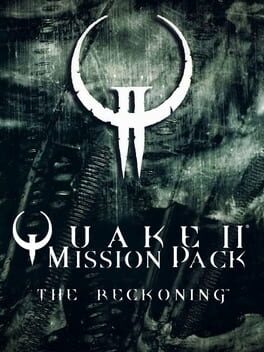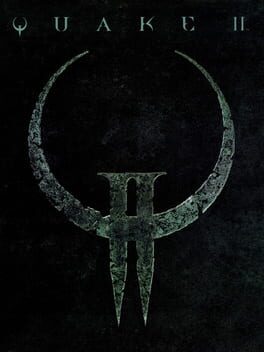2023
I wish I had a more original take, but this is basically the Twin Peaks: The Return of video games. It is so rare for an expensive-looking AAA game to be this thematically dense and creatively unencumbered. Even the faux-open world collection side quests feel remarkably well integrated into the story and overall experience, to the point where I actually (mostly) enjoyed running around and collecting all of the stuff I missed before crossing the point of no return. I'm going to be thinking about this game for a long time, and will probably do the NG+ "Final Draft" mode whenever I get the chance.
I think Alan Wake II and Disco Elysium are probably the two best European video games ever made, and they were developed a 3 hour boat ride away from each other across the Gulf of Finland. What is going on in northeast Europe that makes people geniuses at video game design?
I think Alan Wake II and Disco Elysium are probably the two best European video games ever made, and they were developed a 3 hour boat ride away from each other across the Gulf of Finland. What is going on in northeast Europe that makes people geniuses at video game design?
If AWE was Remedy's way of setting up Alan Wake II, The Foundation seems to be their attempt at setting the stage for Control 2, whenever that comes out. I liked the story in this DLC, particularly for how it directly addresses the Bureau's relationship with the Board and the astral plane, something that is mainly taken as a given in the base game. Other than that I would say this was a slight let down. The Foundation itself is just a series of very similar looking caves covered in red sand, nowhere near as fun to explore (or just look at) as the Oldest House. This also doesn't really add much to the gameplay, other than the Hiss Sharpened enemies, who provide a bit of a new challenge. You get the new Fracture and Shape abilities, but they don't have any utility at all outside of the DLC. At least AWE gave us a new Service Weapon form, even if it was kind of lame.
It's another few hours of Control, a game that I like, so it's not bad, but it doesn't quite live up to the standards of the base game for me.
It's another few hours of Control, a game that I like, so it's not bad, but it doesn't quite live up to the standards of the base game for me.
2019
I played this a few years ago on a base PS4 and struggled with it a bit. I could get a sense of the aesthetic they were going for, but the hardware was not able to sell it. None of the amazing raytracing, textures would take forever to load (and sometimes not load at all), and there was even some basic draw distance issues. The PS5 version is so much more effective, not just because it looks nicer, but because of how much those graphical extras contribute to the mood and atmosphere of this thing. I was so much more immersed this time, and got much more into the story and the combat as a result. I still find it a little frustrating that both Alan Wake and this game have such great storytelling, unique and inventive worlds, and rich palpable atmosphere, but gameplay that mostly consists of shooting guys who attack you with conventional weapons, but at least the combat in Control feels really good, and de-emphasizes gunplay in favor of some very satisfying telekinesis moves.
2020
One of the primary reasons I'm doing this Control replay is that I wanted to play this DLC before diving into Alan Wake II. It seems like the Remedy fandom is pretty negative on this one, but I quite liked it. I think they did a really good job incorporating the atmosphere and some of the gameplay concepts of Alan Wake into Control (a game that is, let's be honest, a hell of a lot more fun to play than Alan Wake). The design of the Not-Hartman monster is great body horror, and I really dug the survival horror approach to those encounters. I do think Control's lighting system makes the darkness sections a little harder to read than I think they're supposed to be, but that's my only real complaint.
Some great additions to the Control lore too. Fra Mauro is just a little subplot in this story, but it's a concept so interesting and unsettling that it could be the basis for an entire novel or screenplay.
Some great additions to the Control lore too. Fra Mauro is just a little subplot in this story, but it's a concept so interesting and unsettling that it could be the basis for an entire novel or screenplay.
Enjoyable first playthrough. Got the Liberator of Rubicon ending. I know there's a lot of additional story to unlock with NG+ and NG++ but I'm a little more burned out on this than I usually am after a first playthrough of a non-Elden Ring FromSoft game, so I probably won't return to this for a while.
Very cool game though. Never played an Armored Core before, and I found this really engaging and addictive. I got into the build strategy more than I thought I would, but while most people who play this game emphasize creating a variety of different builds for different situations, I spent more time trying to hone and perfect one build that suited my preferred play style (fast and maneuverable with lower health and defense), and which could carry me through the whole game. For the most part, I was able to do this without issue. Only in the endgame did I find myself facing bosses that my main AC ("POST BOY") could not really handle. I had to put together a massive overpowered tank build ("BIG NASTY MAN") to take down Ibis, who was just too fast for me to reliably dodge, but who was fragile enough that a tank could dish out damage fast enough to kill her before she could kill me. I struggled a lot with Arquebus Balteus and tried a large variety of builds that all failed, before settling back into a slightly modified POST BOY with his standard hand weapons both replaced with pulse weapons, his plasma missiles replaced with regular missiles, and slightly sturdier legs that could handle the extra burden at the expense of a tiny amount of speed. I found this difficulty spike really frustrating honestly. It took me hours to beat Arquebus Balteus while no other boss took me more than about 5 attempts (except Ibis who took more like 10). But I will say finally beating that son of a bitch was almost as satisfying as finally killing Orphan of Kos in Bloodborne. I saved a video of my victory, and I have watched it multiple times.
Anyway, this is really good. I feel like my rating may increase if/when I dip back in for the NG+(+), we'll see.
Very cool game though. Never played an Armored Core before, and I found this really engaging and addictive. I got into the build strategy more than I thought I would, but while most people who play this game emphasize creating a variety of different builds for different situations, I spent more time trying to hone and perfect one build that suited my preferred play style (fast and maneuverable with lower health and defense), and which could carry me through the whole game. For the most part, I was able to do this without issue. Only in the endgame did I find myself facing bosses that my main AC ("POST BOY") could not really handle. I had to put together a massive overpowered tank build ("BIG NASTY MAN") to take down Ibis, who was just too fast for me to reliably dodge, but who was fragile enough that a tank could dish out damage fast enough to kill her before she could kill me. I struggled a lot with Arquebus Balteus and tried a large variety of builds that all failed, before settling back into a slightly modified POST BOY with his standard hand weapons both replaced with pulse weapons, his plasma missiles replaced with regular missiles, and slightly sturdier legs that could handle the extra burden at the expense of a tiny amount of speed. I found this difficulty spike really frustrating honestly. It took me hours to beat Arquebus Balteus while no other boss took me more than about 5 attempts (except Ibis who took more like 10). But I will say finally beating that son of a bitch was almost as satisfying as finally killing Orphan of Kos in Bloodborne. I saved a video of my victory, and I have watched it multiple times.
Anyway, this is really good. I feel like my rating may increase if/when I dip back in for the NG+(+), we'll see.
Not quite as great as Dimension of the Machine, but still an improvement on the base game. Corpse Run and Darkest Depths are especially awesome designs with good environmental storytelling. The last boss is frustratingly difficult but I honestly love the way it (spoiler alert, I suppose) incorporated enemies from Quake 1 to tie the Q1 and Q2 stories together. Not 100% sure the explanation they settled on makes the most sense, but it feels right.
Final Quake 1/2 rankings:
1. Q1: Dimension of the Machine
2. Q1 (base game)
3. Q2: Call of the Machine
4. Q2 (base game)
5. Q1: Dimension of the Past
6. Q2: The Reckoning
7. Q1: Scourge of Armagon
8. Q1: Dissolution of Eternity
9. Q2: Ground Zero
Final Quake 1/2 rankings:
1. Q1: Dimension of the Machine
2. Q1 (base game)
3. Q2: Call of the Machine
4. Q2 (base game)
5. Q1: Dimension of the Past
6. Q2: The Reckoning
7. Q1: Scourge of Armagon
8. Q1: Dissolution of Eternity
9. Q2: Ground Zero
After being pretty underwhelmed by most of the Quake 1/2 expansions so far, this one kind of blew me away. Dimension of the Machine has some extremely good map design that takes full advantage of Nightdive's enhanced Quake 1 engine, both in terms of the visual grandeur and the sheer size of them. Each of the 5 worlds has its own distinct theme and feeling, and there is some really great environmental storytelling in them, far beyond what id ever did in the base game. There are even some heavily implied story connections to Quake 2, a very bold move considering they were obviously never meant to be in the same universe. Makes me pretty excited to see if they expand that idea in Quake 2's Call of the Machine expansion.
Blacksmiths > Cultists > Astrologers > Machinists > Stonemasons
Blacksmiths > Cultists > Astrologers > Machinists > Stonemasons
Pretty good! When it comes to the feeling, the atmosphere, and the total lack of concern for story, this is the most faithful to the original Quake of any of the expansions I've played so far. The map design and enemy encounters are much different, borrowing the abstract approach of Quake 1 but little else. A lot of maps are designed symmetrically, with multiple tidy loops that all bring you back to the beginning. Most maps have at least one enemy encounter that is designed to be overwhelming, nearly impossible to survive without fleeing. I imagine this is frustrating for the type of Quake completionists who feel the need to kill every enemy in every map, but once I realized that was not going to be possible for most of these maps I actually found it quite freeing. The whole experience is pretty interesting, like playing a Quake that's informed by 20 years of genre evolution. It doesn't always work, but it's never boring.
I blew through this one in one sitting. This is much more of what I was hoping for from the first DLC. It even surpasses the base game in a lot of ways. Fully utilizes the dream logic of the "dark place" to put the player in novel combat and exploration scenarios that are disorienting and visually striking. The giant rusty compartmentalized wheel that you run through is the closest this first game comes to nailing the Silent Hill vibe, but the real highlight is that last run to the lighthouse with the extreme light/dark contrast. Breaking down the cover and luring the enemies into the open areas, hoping the spotlight swings back around in time to kill them before they can kill you, is a really satisfying little gameplay loop. This also does a good job bookending the story, taking you back to Alan's original dream from the beginning of the base game.
You can see Remedy leaning into the dream logic that would come to define their next big Wake-verse game Control. It might be a little while before I get to Alan Wake 2, but I hope it's more along these lines.
You can see Remedy leaning into the dream logic that would come to define their next big Wake-verse game Control. It might be a little while before I get to Alan Wake 2, but I hope it's more along these lines.
The last of the original Quake 1/2 expansions. This one was made by Rogue Entertainment, the same developer who made the original Quake's 2nd expansion "Dissolution of Eternity", and this one is similarly not good. An overabundance of new weapons (most of them completely useless), some new enemies that are not fun to fight at all, and a lot of maps that feel like leftover unused Quake 1 maps recreated in Quake 2's map editor. So many labyrinthine levels where everything looks the same and there are no navigational landmarks, totally at odds with Quake 2's design philosophy of tighter interconnected levels with a sense of verisimilitude. Would be totally unplayable without the remaster's compass feature which basically tells you exactly where to go if you're stuck. I barely used that at all in the base game or the first expansion, but I used it a lot here.
Turns out none of the original Quake 1/2 expansions were all that great. I hear the 20th and 25th anniversary expansions that MachineGames made are much better, I'm looking forward to those.
Turns out none of the original Quake 1/2 expansions were all that great. I hear the 20th and 25th anniversary expansions that MachineGames made are much better, I'm looking forward to those.
Fine, I guess. Does some interesting stuff with the story, and while the gameplay is mostly the same, I like the way it develops the "shine flashlight on typewritten words to manifest the object/action" mechanic introduced at the very end of the base game. That being said, I'm a bit frustrated by one thing: it's a chapter that takes place entirely in an abstract constantly-shifting nightmare world that can present itself any way the devs want, but they just doubled down on the main game's approach of setting most levels in boring industrial areas connected together by bits of nondescript forest. Very strange choice to set a game in a charming picturesque small town that seems like it has some dark stuff boiling beneath the surface, only to basically ignore it for 90% of the game's play time. I didn't complain about this in my review for the main game, so I'm doing it here.
2010
(Note: I played the remaster but I don't like logging remasters)
Kind of interesting to see a game with the exact same influences as the Team Silent era Silent Hill games, but interpreted from a completely different point of view. Alan Wake is almost like the inverse of Silent Hill. SH had a setting and imagery reminiscent of Stephen King, but leaned more heavily into the David Lynch influence for the story, atmosphere, and characters. Alan Wake has a setting and imagery more reminiscent of Lynch (particularly Twin Peaks), but has a story and atmosphere right out of one of Stephen King's novels. I prefer the Silent Hill recipe much more, but this is pretty good too. Not anywhere near as scary or moving as Silent Hill, but it has a good and cleverly written story, great characters by video game standards, and surprisingly intense combat. I didn't expect to die as much as I did in this game, it actually got pretty frustrating and tedious in places, but the core gameplay loop is really satisfying when it gets the balance right.
I don't know, pretty good game. I like it but I don't love it.
Kind of interesting to see a game with the exact same influences as the Team Silent era Silent Hill games, but interpreted from a completely different point of view. Alan Wake is almost like the inverse of Silent Hill. SH had a setting and imagery reminiscent of Stephen King, but leaned more heavily into the David Lynch influence for the story, atmosphere, and characters. Alan Wake has a setting and imagery more reminiscent of Lynch (particularly Twin Peaks), but has a story and atmosphere right out of one of Stephen King's novels. I prefer the Silent Hill recipe much more, but this is pretty good too. Not anywhere near as scary or moving as Silent Hill, but it has a good and cleverly written story, great characters by video game standards, and surprisingly intense combat. I didn't expect to die as much as I did in this game, it actually got pretty frustrating and tedious in places, but the core gameplay loop is really satisfying when it gets the balance right.
I don't know, pretty good game. I like it but I don't love it.
This is fine. Better than either of the original Quake 1 expansions, I think. Not too surprising that Xatrix is the only one of these Quake 1/2 expansion devs to go on to anything particularly notable afterwards (not counting MachineGames, obviously).
I liked the new weapons in this one a lot, particularly the Phalanx. The maps are a bit of a mixed bag, some really good, some really bad (particularly the lazy final map that recycles the Makron boss fight from the base game but set in a much worse arena). The new enemies aren't anything special, and there are way too many enemy encounters that involve you getting ambushed from behind by an enemy that was hiding behind a secret door. But overall I had an OK time playing through this.
I liked the new weapons in this one a lot, particularly the Phalanx. The maps are a bit of a mixed bag, some really good, some really bad (particularly the lazy final map that recycles the Makron boss fight from the base game but set in a much worse arena). The new enemies aren't anything special, and there are way too many enemy encounters that involve you getting ambushed from behind by an enemy that was hiding behind a secret door. But overall I had an OK time playing through this.
1997
A much more cohesive and forward-thinking game than the original Quake, with some pretty novel interconnected level design that hints towards what Valve would eventually achieve with Half-Life. I wish this had more personality, it just doesn't pop quite like the original Quake. The cyborg enemy designs are really boring, and the bland sci-fi aesthetics pale in comparison to the imaginative Lovecraftian/medieval sci-fi look of the first game. It just doesn't have that thick omnipresent arcane atmosphere that made the original so compelling.
It's still pretty fun though, much better than the haters back in the late '90s had led me to believe. Glad I played it.
It's still pretty fun though, much better than the haters back in the late '90s had led me to believe. Glad I played it.
A mostly very well executed long-form logic puzzle with a cool story. Kind of reminded me of Her Story, but a lot more "gamey". There were times when I was pretty incredulous about the claim that this can be solved without any guessing, but it turned out to be true (though I think the system of locking in answers when you get 3 correct kind of encourages guessing when you're close to figuring out a few crew members' identities but haven't quite gleaned all of the important information yet). I can't say I totally get why this is frequently talked about like it's one of the best games of all time, but it's very clever and I had a good time with it.

